The Dandelion Difference
Most families meet their goals in 6-8 months!
- 60 minute Intake session- Parents only to review background history, concerns and goals
- Weekly 45 minute child/pre-teen sessions*
- Weekly 55 minute parent only sessions* to focus on answering your questions and creating solutions
- Weekly emails recapping what we discussed, links to additional information and homework
- Reports for medical doctors, teaching staff, other professionals as needed
- Quick response to your phone calls and emails
- Achieving goals quickly
* Fees for each session paid separately
 Michelle’s Synergetic play therapy approach to therapy:
Michelle’s Synergetic play therapy approach to therapy:
The Synergetic Play Therapy approach looks at how attachment, emotions, sensory needs and perceptions affect the parent-child relationship. It specifically focuses on helping children repattern their nervous systems, so that they can effectively manage the intensity inside their bodies. This is especially effective for aggressive children, or those with high dysregulation and/or impulsive behaviors. The Synergetic Play Therapy approach recognizes that children will do whatever is necessary to manage the range of emotions and sensations that are arising in their bodies. If it feels as if you are walking on egg shells, then this may be the approach for your child.
For parents- we focus on the impact of perception, the emotions towards how things were ‘suppose to go,’ the developmental stages of growth and change, deeply understanding your child’s diagnosis as well as brain development. Synergetic Play Therapy integrates neuroscience with mindfulness while we integrate emotions, feelings and perceptions to reduce outbursts, meltdowns, emotional extremes and aggression.
Michelle’s rate is $285 per session.
Learn more about Michelle. Alyse’s Yoga & Mindfulness approach to therapy:
Alyse’s Yoga & Mindfulness approach to therapy:
The mindfulness approach with yoga techniques is an extension of Mindfulness Based- Cognitive Behavioral Therapy, which utilizes breathing techniques and meditation to change/rewire neuropathways. Yoga allows children to use their imagination and develop healthy coping skills. Children that struggle with temper tantrums and anxiety often have difficulties regulating their emotions. Meditation, visualization, and breathing within yoga poses allows them to develop these techniques in situations that heighten their emotional response.
Being mindful increases children’s awareness of their emotions and allows them to focus on how they may be feeling or responding to various situations. Mediation or visualization focuses on altering stress responses by promoting stillness of the mind for increased attention. Yoga’s integration of the breath and movement enhances modulation, organization, and as mentioned self-regulation, as well as improves motor planning, balance and strength.
In combination, these are great techniques to utilize with ADHD and Autistic children.
Alyse’s rate is $275 per session.
Learn more about Alyse. Ashley’s Mindfulness and Child Centered Play Therapy approach to therapy:
Ashley’s Mindfulness and Child Centered Play Therapy approach to therapy:
A Child Centered Play Therapy approach is all about meeting your child where they are at in an accepting, nonjudgmental way. Children, like adults, want to be accepted for who they are. I believe in the value, uniqueness, and dignity of every child and family that come through my door. I want to earn your family’s trust in order to help you accomplish your goals.
As a former preschool teacher, I know that fostering a special environment where your child feels safe and accepted is key. Whether it is in a classroom or a counseling office, having a warm, fun, and creative space helps children learn, gain confidence, and explore more about themselves. Your child can work through their frustrations through play, sand tray, and expressive arts activities to explore their deeper emotions. Mindfulness activities, such as deep breathing and visualizations, will help your child learn to better self regulate. Psychoeducation and parent coaching will help round out your family’s counseling experience. I want your family to feel supported and better equipped to handle the joys and challenges your child will experience.
Ashley’s rate is $200 per session.
Learn more about Ashley.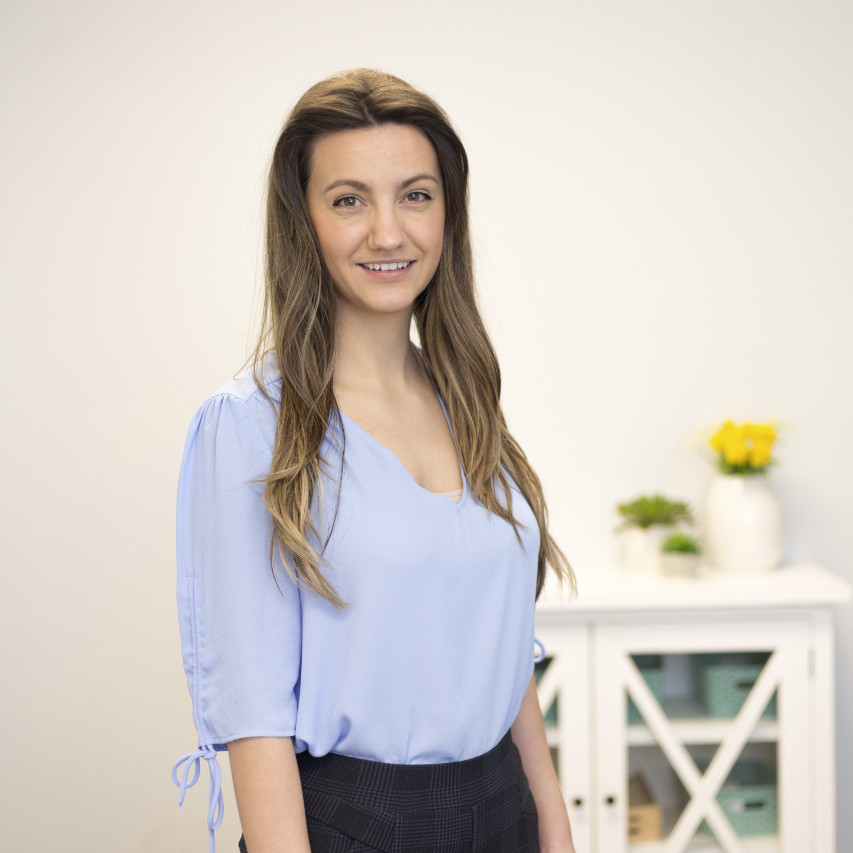 Mirela’s Cognitive-Behavioral Play Therapy approach to therapy:
Mirela’s Cognitive-Behavioral Play Therapy approach to therapy:
The Cognitive-Behavioral approach derives from Cognitive-Behavioral Play Therapy which focuses on the importance of thoughts, feeling, behaviors and environment. This approach combines components from Cognitive Therapy and Behavioral Therapy which incorporates thoughts, emotions and learned behaviors in order to reach the desired goals. Throughout therapy, the main focus is thinking patterns and perceptions that underlie behavior, while translating the knowledge from therapy to the natural environments. This has been proven effective managing children’s behavioral problems, anxiety, fears and self-esteem concerns. Through the use of a play modality, children can learn cognitive strategies to rewire neuropathways, coping skills to aid aversive feelings and learn and desired behaviors through modeling. Modeling is a crucial component, as found through the social-learning theory, when dealing with problem behaviors. Modeling is an effective way to learn problem-solving skills, effective solutions to problems, as well as to acquire, strengthen or weaken behaviors.
During the parenting sessions, we focus on understanding the diagnosis and/or challenges your child is facing, the impact of this on everyday behaviors, developmental stages and appropriate expectations. Additionally, through parent coaching, we will focus extensively on incorporating behavioral techniques at home and discuss modeling behaviors as it applies to your family.
Mirela’s rate is $200 per session.
Learn more about Mirela. Haley’s Solution-Focused Approach:
Haley’s Solution-Focused Approach:
The solution-focused approach targets your child’s strengths and abilities to resolve the challenges that contribute to their anger, aggression and anxiety. Anger is similar to an onion, in that anger is the emotion that is shown while there are multiple layers of different emotions underneath. Haley works to help your child identify what they are really feeling and helps them express those emotions in a more desirable way. For children with ADHD and Autism, this is a crucial foundational experience that allows all other goals to progress. Emotional work is the stepping stone for social skills, reducing anxiety and so much more. Using a Solution-Focused approach, Haley emphasizes your child’s positive attributes and behaviors and enables them with the tools to overcome those powerful emotions. Being solution focused means she is focused on looking at the bigger picture and she will assist you in that process as well.
Haley’s parenting approach works to identify what is and is not working for you and your family. Together, you will focus on understanding your child’s development, diagnosis, and the day-to-day challenges you are experiencing. By understanding the big picture of who your child is, you will then be able to work together to integrate techniques within the home that are best suited to you and your child’s needs.
Haley’s rate is $180 per session.
Learn more about Haley.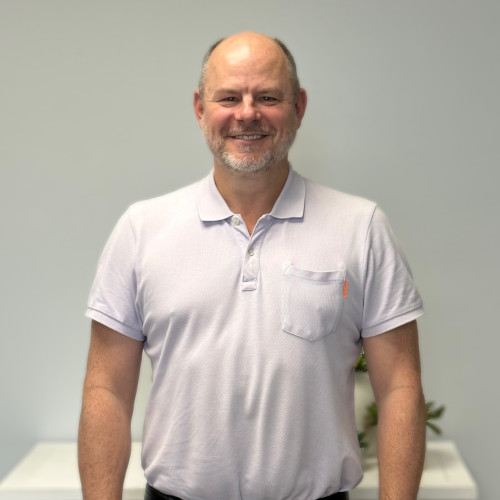 Matt’s Solution-Focused Approach:
Matt’s Solution-Focused Approach:
The Solution-Focused approach targets your ADHD child’s strengths and abilities while recognizing the areas where they feel misunderstood. This approach addresses the challenges that ADHD brings to their social emotional experiences, while also honoring how ADHD impacts their education as well as their day to day life. In addition, as an ADHD adult, Matt can effectively address the nuanced dynamics of ADHD within the family. This comprehensive approach not only targets individual growth, but fosters transformative change within family dynamics. Matt will identify which behaviors are truly ADHD, and which may be more behavioral in nature, so that you can differentiate the most challenging moments of parenting. This can be crucial for knowing when your ADHD child is trying their best, or when they may be using ADHD as an excuse and playing the ‘blame game.’ Matt emphasizes how your child’s ADHD is a super power, while also bringing awareness to the tools and resources that could support your child in reaching their full potential.
Drawing from Matt’s training in Marriage and Family Therapy, Matt specializes in developing an effective “parenting book” to guide your journey. Recognizing the limitations of conventional parenting strategies for ADHD and 2E children, Matt tailors parenting strategies to meet the unique personality and needs of your child. His goal-oriented approach provides practical, real-world solutions that nurture emotional awareness, hone parenting skills, and foster positive and lasting changes for both children and parents.
Matt’s rate is $140 per session.
Learn more about Matt. Madison’s Solution-Focused Approach:
Madison’s Solution-Focused Approach:
Madison’s child-centered play therapy approach focuses on the family unit as a whole as a way to support your ADHD child. This approach explores sensory solutions, coping skills and new communication styles in order to create a happier environment for your entire family. The approach is specifically designed to analyze how the family system has been impacted by supporting your child with unique needs. Through play therapy techniques, Madison tackles the social and emotional challenges that ADHD presents, whether due to anxiety, perfectionism, and/or struggles with executive function. She then incorporates mindfulness activities to help children build emotional awareness, enhance friendship making skills and build confidence and self-esteem. In addition, Madison focuses on identifying the negative thinking patterns and perceptions that influence unwanted behaviors in order to manage the behaviors and foster positive change.
Raised with an ADHD brother, Madison offers a straightforward and realistic parenting perspective. Her child-centered approach focuses on all individual family members and helps parents get to the bottom of confusing and overwhelming behaviors and develop achievable goals and family-oriented solutions for the whole family.
Madison’s rate is $140 per session.
Learn more about Madison. Louisa’s Child Centered Play Therapy approach to therapy:
Louisa’s Child Centered Play Therapy approach to therapy:
A Child Centered Play Therapy approach focuses on providing opportunities for children to take the lead to work through their emotions and experiences. It is the belief that children naturally know what they need to work on in therapy, but might not know how to implement the skills or changes that are needed to reach their parents’ goals. Louisa acts as an assistant and an advocate for the child as they process and work through their anxiety, anger and other emotions in an approach that is recognized as the most natural form of therapy for children- play!
During the parent sessions, Louisa assists parents in understanding from their child’s point of view how they are handling and working through day to day events. Louisa acts as the voice of the child to better explain what the child cannot yet explain for themselves, while also helping parents navigate the day to day parenting challenges and implementing changes in the home to best set their child up for success.
Louisa’s rate is $140 per session.
Learn more about Louisa.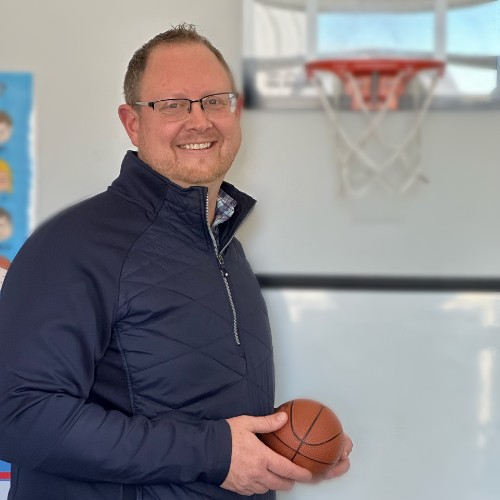 Geoff’s Cognitive- Behavioral Play therapy approach to therapy:
Geoff’s Cognitive- Behavioral Play therapy approach to therapy:
The Cognitive-Behavioral approach focuses on the importance of identifying the thoughts, feelings and experiences that surround the emotions and behaviors that are being targeted. The goal is focusing on supporting the child in understanding others’ perspectives, and identifying their interactions that contributed to the bigger concern. Geoff creates a neurodivergent supportive perspective by both modeling goal behaviors, while also adapting to the child’s unique personality. It is all about supporting the child on being the best version of themself, while gaining confidence and learning boundaries. He also focuses on helping the child with flexible thinking and learning how to share their concerns in a way that both parents and peers understand the child’s biggest needs.
Geoff’s parenting focus comes from being a parent himself. He targets the pain points with a focus on educating and problem solving the challenges of being a 2E parent. Geoff utilizes a direct solution-focused approach while assisting parents to recognize that they are the magic sauce that accelerates the therapeutic process.
Geoff’s rate is $120 per session.
Learn more about Geoff. Mckenzie’s Child-Centered Play Therapy approach to therapy:
Mckenzie’s Child-Centered Play Therapy approach to therapy:
The child-centered play therapy approach is all about meeting your child where they are through a non-verbal, play-based experience that enables children to share more than they ever might be able to do verbally. Like adults, children can find it difficult to share their challenges, and they may struggle even more to understand what they are experiencing! Child- centered play therapy allows for them to communicate their deepest struggles without even needing to be aware of the ‘why’ behind their behavior.
During parenting sessions, we will focus on gaining a deeper understanding of how your child’s diagnosis impacts their processing and “functioning” in the world. Additionally, we will work collaboratively to identify how you, as parents, can create an environment that fosters your child’s growth and success. Together, we will critically assess traditional parenting methods that may no longer serve your family’s needs and replace them with evidence-based alternatives and innovative strategies that are better suited to your child’s unique situation. Our sessions will empower you to support your child in a way that promotes resilience and confidence.
Mckenzie’s rate is $120 per session.
Learn more about Mckenzie.Robert’s neurobiological approach to therapy:
The neurobiological approach can be considered an extension of Cognitive Behavioral Therapy (CBT). This physiological approach looks at how the neural functioning of neurons and neurotransmitters shape and affect the behavior of a person. In the case of mental health this approach attempts to relate human behavior to electrical and chemical activities that is taking place in the brain and central nervous system. A person’s difficulty in thinking before responding emotionally or behaviorally can be further understood by examining the brain and how people respond under certain conditions like stress, threats, or pleasure.
This approach especially focuses on how learning and the processing of information occurs within the person by looking at how sensory input from the eyes, ears and other sensory organs work and pass information along to the brain. This leads to a greater understanding of how to attract and maintain a learner’s attention. By further understanding sensory information along with any other form of information (and how it is actually processed in the brain) is leading to a greater understanding of such things as the nature of memory, certain behaviors and how to regulate emotional states and functional behavioral responses. Robert uses this neurobiological approach specifically in his work with ADHD and Anxiety, as well as other behavioral issues and parent coaching.
Learn more about Robert.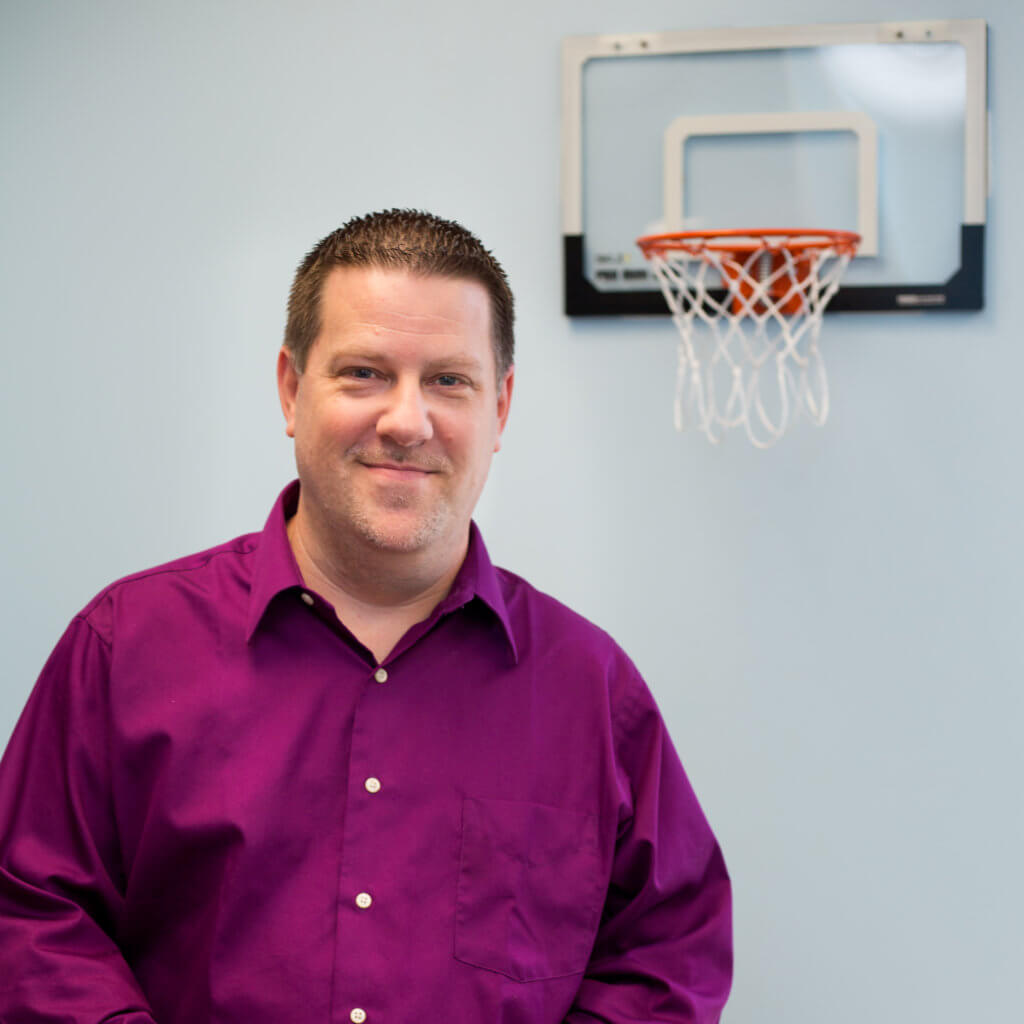
Michelle’s Synergetic play therapy approach to therapy:
The Synergetic Play Therapy approach looks at how attachment, emotions, sensory needs and perceptions affect the parent-child relationship. It specifically focuses on helping children repattern their nervous systems, so that they can effectively manage the intensity inside their bodies. This is especially effective for aggressive children, or those with high dysregulation and/or impulsive behaviors. The Synergetic Play Therapy approach recognizes that children will do whatever is necessary to manage the range of emotions and sensations that are arising in their bodies. If it feels as if you are walking on egg shells, then this may be the approach for your child.
For parents- we focus on the impact of perception, the emotions towards how things were ‘suppose to go,’ the developmental stages of growth and change, deeply understanding your child’s diagnosis as well as brain development. Synergetic Play Therapy integrates neuroscience with mindfulness while we integrate emotions, feelings and perceptions to reduce outbursts, meltdowns, emotional extremes and aggression.
Learn more about Michelle.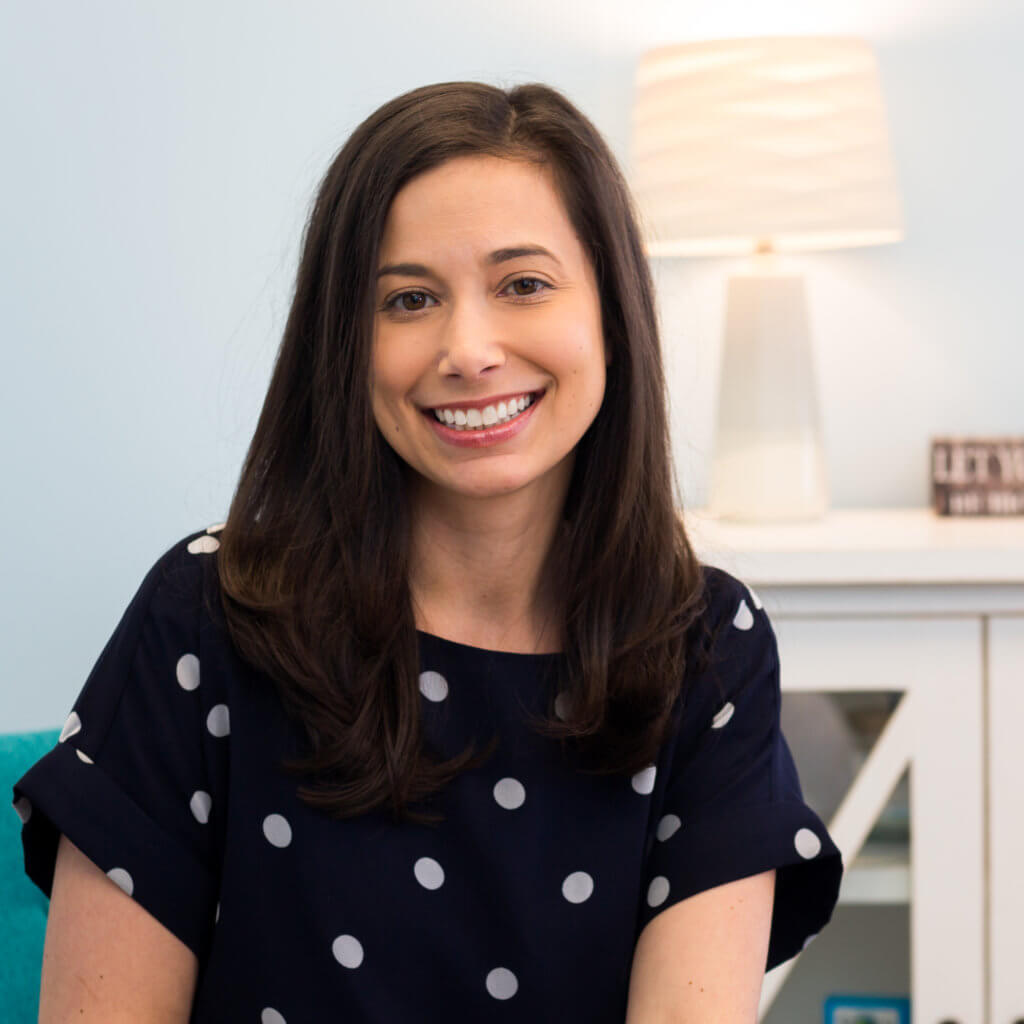
Robert’s neurobiological approach to therapy:
The neurobiological approach can be considered an extension of Cognitive Behavioral Therapy (CBT). This physiological approach looks at how the neural functioning of neurons and neurotransmitters shape and affect the behavior of a person. In the case of mental health this approach attempts to relate human behavior to electrical and chemical activities that is taking place in the brain and central nervous system. A person’s difficulty in thinking before responding emotionally or behaviorally can be further understood by examining the brain and how people respond under certain conditions like stress, threats, or pleasure.
This approach especially focuses on how learning and the processing of information occurs within the person by looking at how sensory input from the eyes, ears and other sensory organs work and pass information along to the brain. This leads to a greater understanding of how to attract and maintain a learner’s attention. By further understanding sensory information along with any other form of information (and how it is actually processed in the brain) is leading to a greater understanding of such things as the nature of memory, certain behaviors and how to regulate emotional states and functional behavioral responses. Robert uses this neurobiological approach specifically in his work with ADHD and Anxiety, as well as other behavioral issues and parent coaching.
Learn more about Robert.
Michelle’s Synergetic play therapy approach to therapy:
The Synergetic Play Therapy approach looks at how attachment, emotions, sensory needs and perceptions affect the parent-child relationship. It specifically focuses on helping children repattern their nervous systems, so that they can effectively manage the intensity inside their bodies. This is especially effective for aggressive children, or those with high dysregulation and/or impulsive behaviors. The Synergetic Play Therapy approach recognizes that children will do whatever is necessary to manage the range of emotions and sensations that are arising in their bodies. If it feels as if you are walking on egg shells, then this may be the approach for your child.
For parents- we focus on the impact of perception, the emotions towards how things were ‘suppose to go,’ the developmental stages of growth and change, deeply understanding your child’s diagnosis as well as brain development. Synergetic Play Therapy integrates neuroscience with mindfulness while we integrate emotions, feelings and perceptions to reduce outbursts, meltdowns, emotional extremes and aggression.
Learn more about Michelle.

Michelle’s Synergetic play therapy approach to therapy:
The Synergetic Play Therapy approach looks at how attachment, emotions, sensory needs and perceptions affect the parent-child relationship. It specifically focuses on helping children repattern their nervous systems, so that they can effectively manage the intensity inside their bodies. This is especially effective for aggressive children, or those with high dysregulation and/or impulsive behaviors. The Synergetic Play Therapy approach recognizes that children will do whatever is necessary to manage the range of emotions and sensations that are arising in their bodies. If it feels as if you are walking on egg shells, then this may be the approach for your child.
For parents- we focus on the impact of perception, the emotions towards how things were ‘suppose to go,’ the developmental stages of growth and change, deeply understanding your child’s diagnosis as well as brain development. Synergetic Play Therapy integrates neuroscience with mindfulness while we integrate emotions, feelings and perceptions to reduce outbursts, meltdowns, emotional extremes and aggression.

Robert’s neurobiological approach to therapy:
The neurobiological approach can be considered an extension of Cognitive Behavioral Therapy (CBT). This physiological approach looks at how the neural functioning of neurons and neurotransmitters shape and affect the behavior of a person. In the case of mental health this approach attempts to relate human behavior to electrical and chemical activities that is taking place in the brain and central nervous system. A person’s difficulty in thinking before responding emotionally or behaviorally can be further understood by examining the brain and how people respond under certain conditions like stress, threats, or pleasure.
This approach especially focuses on how learning and the processing of information occurs within the person by looking at how sensory input from the eyes, ears and other sensory organs work and pass information along to the brain. This leads to a greater understanding of how to attract and maintain a learner’s attention. By further understanding sensory information along with any other form of information (and how it is actually processed in the brain) is leading to a greater understanding of such things as the nature of memory, certain behaviors and how to regulate emotional states and functional behavioral responses.
Robert uses this neurobiological approach specifically in his work with ADHD and Anxiety, as well as other behavioral issues and parent coaching.
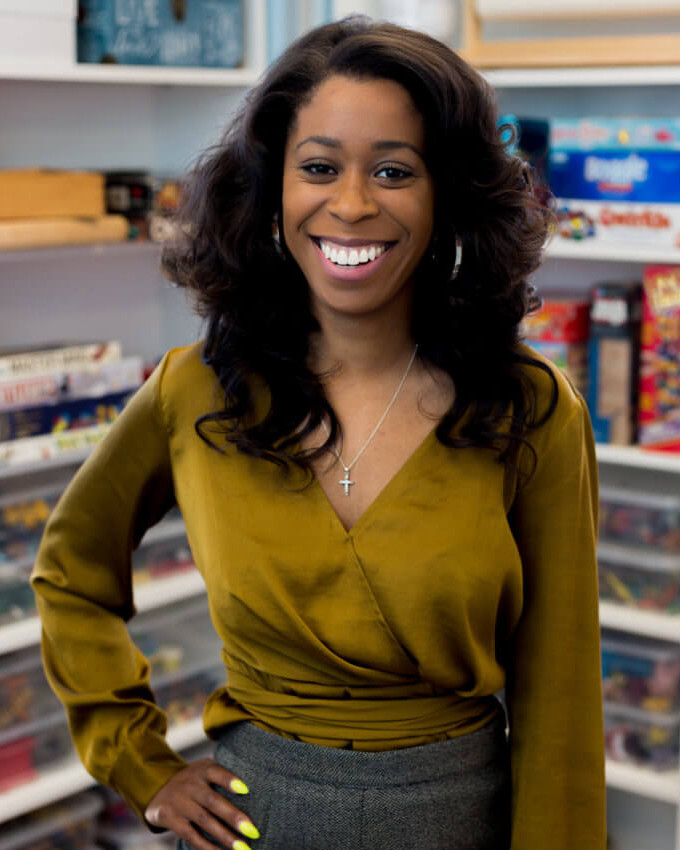
Alyse’s Yoga & Mindfulness approach to therapy
The mindfulness approach with yoga techniques is an extension of Mindfulness Based- Cognitive Behavioral Therapy, which utilizes breathing techniques and meditation to change/rewire neuropathways. Yoga allows children to use their imagination and develop healthy coping skills. Children that struggle with temper tantrums and anxiety often have difficulties regulating their emotions. Meditation, visualization, and breathing within yoga poses allows them to develop these techniques in situations that heighten their emotional response. Being mindful increases children’s awareness of their emotions and allows them to focus on how they may be feeling or responding to various situations. Mediation or visualization focuses on altering stress responses by promoting stillness of the mind for increased attention. Yoga’s integration of the breath and movement enhances modulation, organization, and as mentioned self-regulation, as well as improves motor planning, balance and strength.
In combination, these are great techniques to utilize with children who experience ADHD symptoms and are on the Autism Spectrum.

Ashley’s Mindfulness and Child Centered Play Therapy approach to therapy:
A Child Centered Play Therapy approach is all about meeting your child where they are at in an accepting, nonjudgmental way. Children, like adults, want to be accepted for who they are. I believe in the value, uniqueness, and dignity of every child and family that come through my door. I want to earn your family’s trust in order to help you accomplish your goals.
As a former preschool teacher, I know that fostering a special environment where your child feels safe and accepted is key. Whether it is in a classroom or a counseling office, having a warm, fun, and creative space helps children learn, gain confidence, and explore more about themselves. Your child can work through their frustrations through play, sand tray, and expressive arts activities to explore their deeper emotions. Mindfulness activities, such as deep breathing and visualizations, will help your child learn to better self regulate. Psychoeducation and parent coaching will help round out your family’s counseling experience. I want your family to feel supported and better equipped to handle the joys and challenges your child will experience.
